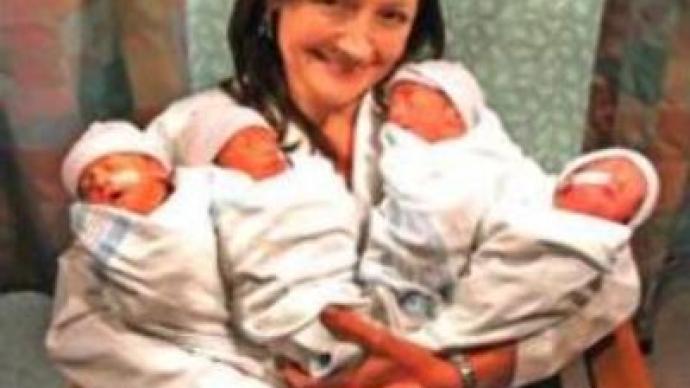Demography to greatly impact Russia's economic growth

Advisers to Russia's trade ministry say the declining population will hold back its economic performance. However the Centre for Strategic Research says solving the country's demographic problems will allow GDP per head to reach $US 20,000.
Russia’s population has been decreasing steadily for the past 20 years. Its permanent workforce is 74 MLN people, which accounts for 52% of the population but those available to work are decreasing by a million every year.“Soon people born in the 1990s will enter the economy and at that time the birth rate was declining dramatically. This means the inflow into the workforce will be low. At the same time the outflow will be very significant. The generations born after the WW2 – the years of booming fertility – will retire,” Anatoly Vishnevsky, demographer points out. Russia's economy has achieved a remarkable feat. Despite its falling population it has seen sustainable economic growth over several years – a trend not matched anywhere else in the world. However, experts don't know how long that will last.They warn that measures should be taken to minimise the impact of the declining workforce on the economy.The Head of the Centre for Strategic Research, Mikhail Dmitriyev, believes one third of the gap could be filled if the death rate declines and Russia attracts more workers from the neighbouring Commonwealth of Independent States countries. According to him, “the rest we may compensate by using the existing workforce more effectively. For example, the number of state employees in Russia is one of the largest in the world. A lot of them are professionals occupying positions that are lower than their qualifications. If we cut the number of state employees and get them into growing industries, this will add to the overall economic growth.”Dmitriyev also says the experience of France shows that a baby boom can pull workers out of the economy, slowing the pace of growth. “To bring up children mothers need to take maternity leave. If the birth rate is high it, more women will take time off, and may reduce the workforce by 7 MLN people – and that's a disaster, when the workforce is already shrinking year-on-year,” he concludes.Russia currently has a programme of financial incentives to boost fertility. However, demographers say it is not on a big enough scale to impact either the workforce or the outlook for Russia's population.
You can share this story on social media:












